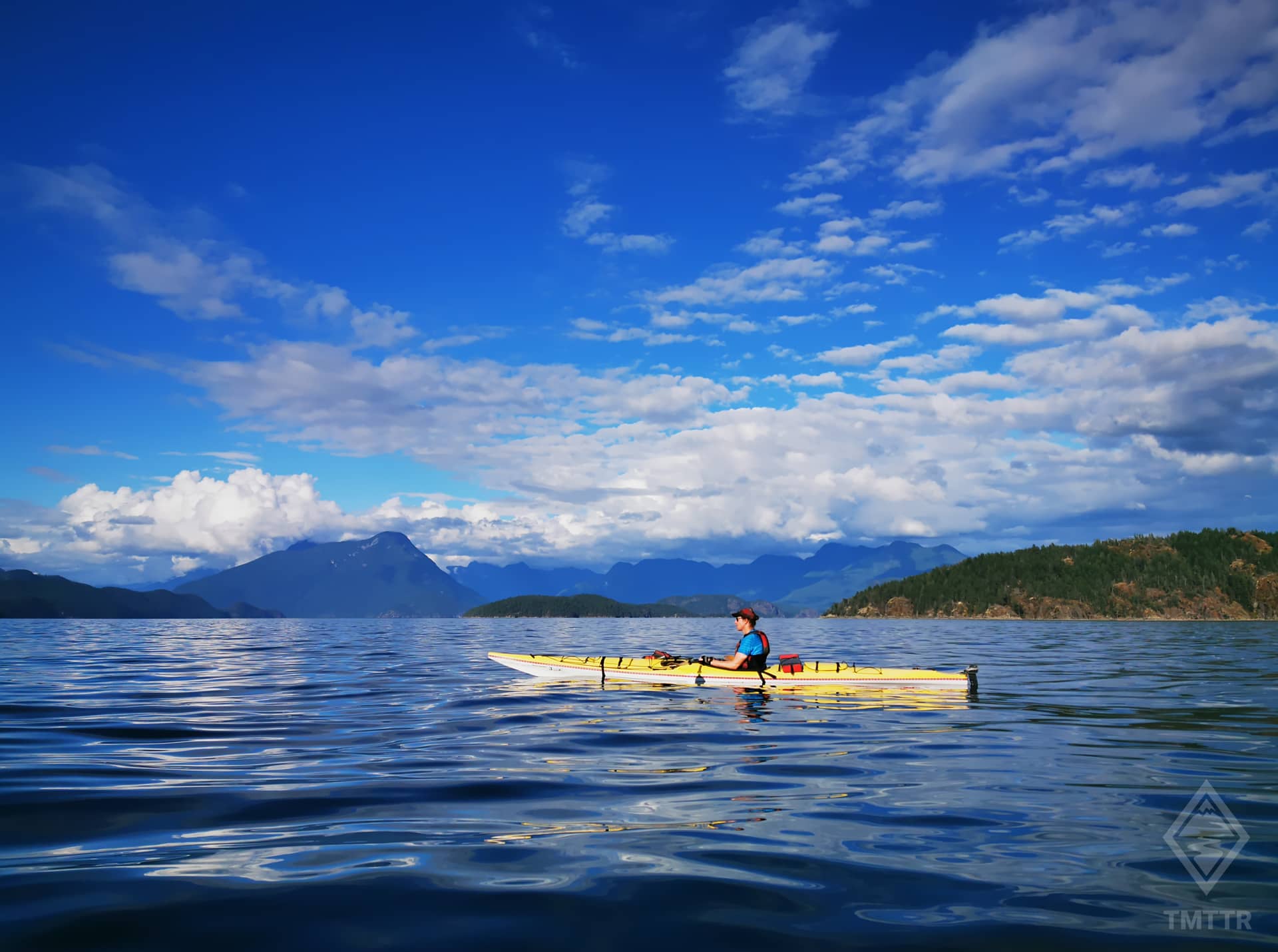
Route Details
-
Difficulty:Advanced Paddling
-
Distance:85 km
- Duration: 5 days
- Route Type: Loop
- Camping: Yes
Summary
The Paddle Around West Redonda is a committing adventure that should only be done with decent paddling experience under your belt. From the relative openness and expansiveness of Desolation Sound, the route follows the narrow, high-sided channels up and around the back of West Redonda. With only a couple of small communities, campgrounds or other boaters around, you really are out in the wild. Plenty of birds, seals and the chance of the odd whale. As far as I know, the route isn't directly on the main whale migration route (Johnstone Straight), but you might get lucky, especially in the lower areas of Desolation Sound.
The loop around the island itself realistically takes three big days, though you'll probably want to make it 4 or 5 to include the time needed to reach West Redonda from your starting point. We did it in 5, which is probably what I'd plan for if we did it again.
Whilst the general conditions and currents aren't crazy, you're committing to being a long way from help and support. Landings are generally manageable with no particularly difficult exits at the campsites we visited. With zero direct ocean exposure, swell was not an issue as you'll see by the mirror-like photo of our conditions.
I completed this trip with Mike over 5 days. Overall, an absolutely magical place to disconnect. Absolutely zero phone signal. Enjoy, but make sure you go prepared with everything you need, and communication should you need it.
Day 1: 16km - Okeover to King Horn
Day 2: 29km - King Horn to Deer Point, via Refuge Cove
Day 3: 24km - Deer Point to Elworthy Bay
Day 4: 21km - Elworthy Bay to Sarah Point
Day 5: 14km - Sarah Point to Okeover Inlet
Navigation
-
Phone signal in BC is not reliable. Always carry an offline map. I recommend and use AllTrails+ for hiking or GaiaMaps for general adventuring. Google Maps does not always have reliable route mapping for backcountry adventures.
Don't Miss
Refuge Cove
There's a tiny community of people who live at Refuge Cove. Believe it or not, there's a small cafe there run by a lovely woman whose name escapes me. She opened up the cafe just for us, served us biscuits, had a coffee and a chat with us, and told us about her relationship to the McVities Biscuit family. Overall a welcome break on an otherwise long day paddling up the west side of West Redonda.
Favorite Camp Spots
Obviously, we couldn't stay at all the camps, but of those we visited or paddled past, Deer Point was my favorite. Check it out in the photos below.
Conditions & Ability
Paddler Ability
Whilst the actual paddling conditions are not advanced, the route around West Redonda is a committing paddle many kilometers from help or support. This is the main reason why it is rated as Advanced. You should be well-practiced with your paddling skills, know how to support your group members in the event of capsize, and have adequate out-of-signal communications devices should you need to contact someone for help. The largest committed crossing you'll make will be about 3km, so consider whether you have the experience to take this on. As usual, the wind tends to generate waves, especially out on the open water, so these open sections are particularly exposed to this effect.
Tides & Currents
Tide-generated currents are relatively minor around West Redonda, with no rapids to worry about. If the wind is minimal, you may wish to factor in currents to your plans. Generally, however, the wind will be of bigger concern. Note that if you decide to explore or deviate from the suggested route, especially to the west, you may encounter rapids.
Wind & Waves
With the route around West Redonda following a series of deep channels between mountains on either side, you can get a funneling effect from the wind. Plan your trip around the wind, and try to use it to your advantage. The eastern side of West Redonda is generally more sheltered than the West. With that in mind, if you have to paddle against wind, I would choose to do it on the east side. Waves may get choppy out on the open water, but generally I would try to avoid paddling after 1 or 2pm as the wind tends to get up in the afternoon.
Camping
-
Campsites around West Redonda are generally basic, offer space for a few tents, and have zero facilities. They generally offer fewer spots than the larger ones around Desolation Sound.
With such committing distances between camp spots, it's helpful that few kayakers venture up around West Redonda. It represents a big undertaking for most paddlers. With small camps and limited space, some groups can get quite protective over space and try to encourage to you go elsewhere. Don't be that group. We're all out there enjoying nature, and we always try to accommodate other groups and make space if possible. Sure, we all want that magical camp spot to ourselves, but sometimes luck isn't on our side.
To be honest, all the camp spots we visited were great, so I wouldn't particularly recommend one over another. Plan your route according to the wind, how you feel, and the currents if necessary.
Pack out everything you pack in, and enjoy these stunning camp spots.
Suggested Season
- Months: May - Sep
Location & Access
- Region: The Sunshine Coast
- Fire Region: Coastal Fire Centre
- Vancouver Day Trip: No
- From Vancouver: 8hr(s)
- Public Transit: No
Getting There
-
From Vancouver
- Ferry from Horseshoe Bay to Langdale on the Sunshine Coast (Gibsons) (about 40 mins)
- Drive up to Earls Cove (90 mins)
- Ferry from Earls Cove to Saltery Bay (40 mins)
- Drive to Powell River Kayaks on the Okeover Inlet (60 mins)
From Vancouver Island
- Ferry from Comox to Powell River (90 mins)
- Drive to Powell River Kayaks on the Okeover Inlet (30 mins)
Alternatively you can start your adventure from Lund. Distances remain approximately the same for getting there and for paddling.
-
If appropriate to reach this adventure, rent a car, or better still, reduce the demand for cars with Evo Car Share, Vancouver's car sharing network.
You May Also Be Interested In
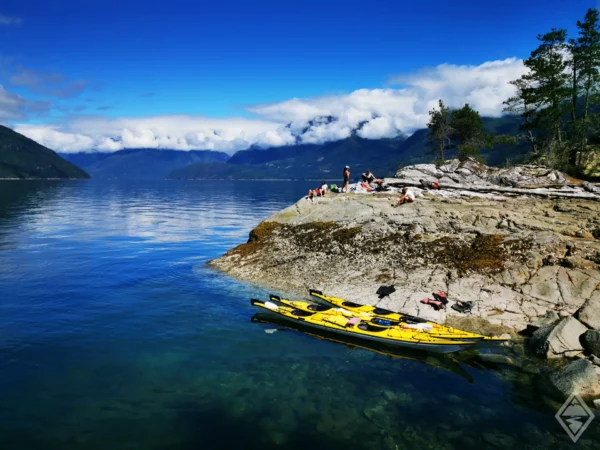
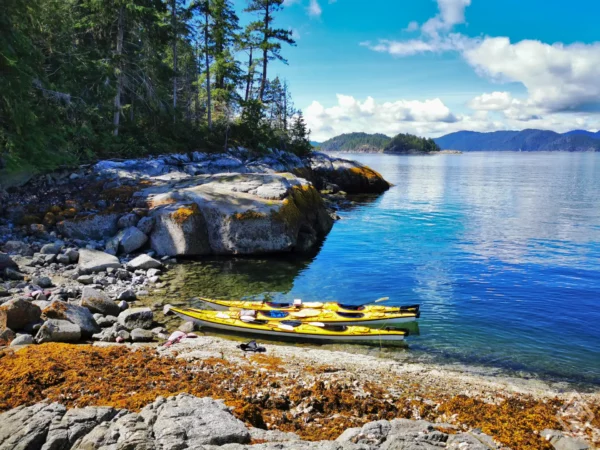
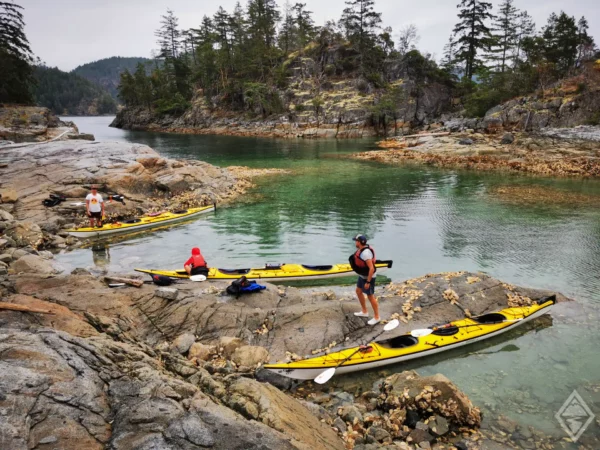
Desolation Sound
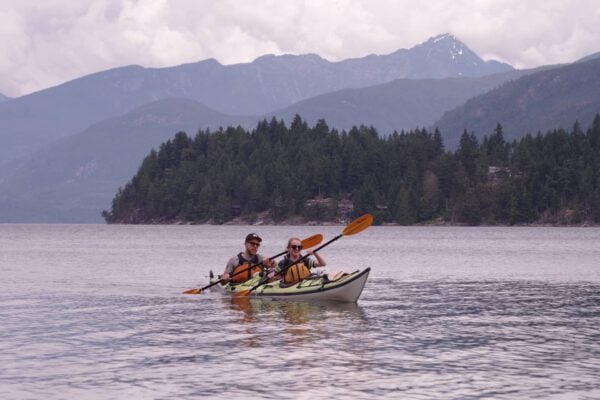
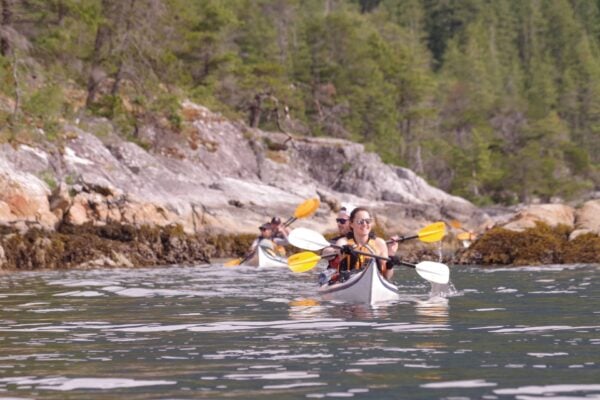
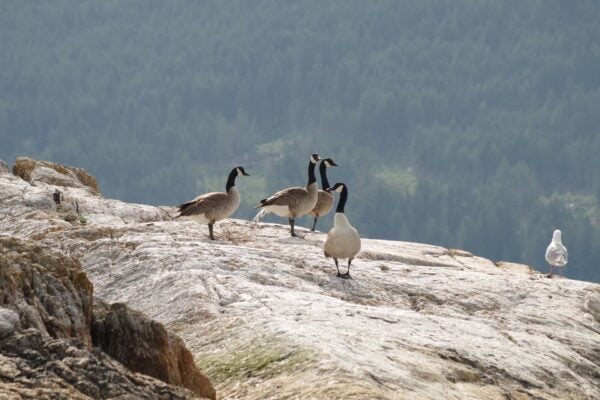

Add Review